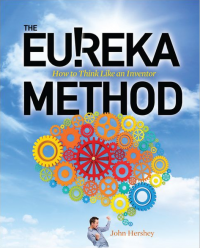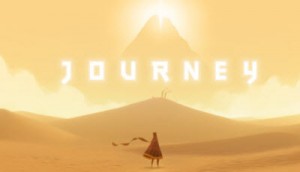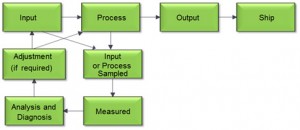A Book for Patent-Hopeful Inventors
Posted on April 23, 2012
Filed Under Business, Technology | Leave a Comment
Now here’s a book that ought to be on technical writers’ shelves, at least if you’re inventive or are working with people who are good at coming up with useful gimmicks. Inventiveness implies trips to the the U.S. Patent office, or at least filings there. And how many of us know reliably how to win a valid patent?
 To that rewarding end, James Floyd Kelly, writing on Wired’s GeekDad blog, recommends John Hershey’s book The Eureka Method: How to Think Like an Inventor. “As a technical writer,” Kelly reports, “I often find myself being introduced to inventors and tinkerers via friends and colleagues. Sometimes these hands-on folks are looking for help with documenting a design or process, and I try my best to offer up advice or sometimes assistance.” In the course of “creating instructions or verifying step-by-steps” Kelly often gets asked about patent law.
To that rewarding end, James Floyd Kelly, writing on Wired’s GeekDad blog, recommends John Hershey’s book The Eureka Method: How to Think Like an Inventor. “As a technical writer,” Kelly reports, “I often find myself being introduced to inventors and tinkerers via friends and colleagues. Sometimes these hands-on folks are looking for help with documenting a design or process, and I try my best to offer up advice or sometimes assistance.” In the course of “creating instructions or verifying step-by-steps” Kelly often gets asked about patent law.
Read more
Video Games as Art, Sometimes Anyway
Posted on March 20, 2012
Filed Under Business, Technology | Leave a Comment
So now for the question of the moment: Can video games be considered art? You think not? Well then, you’re crossing (laser) swords with Kellee Santiago, cofounder and president of Thatgamecompany in Santa Monica, CA. They’ve just issued a new PlayStation game, Journey, that’s been three years in the making and strikes us as having aspects of art. It’s beautiful and apparently soothing, wherever the journey is headed. (Actually, VentureBeat/Gamesbeat notes that Kellee’s company is noted for avoiding violence in its games.)
 Kellee feels strongly about the aspirational aspects of game playing. In 2009, she told a Ted x audience that electronic games “will become more powerful in the 21st century than radio, film and TV combined over the course of the 20th.” Wow! There certainly have been failed, truly dispiriting aspects of TV and radio, but movies seem to be holding their own, as creative and beautiful, occasionally, as Kellee’s ideal games. In the context of sand, Journey’s apparent setting, remember Lawrence of Arabia?
Kellee feels strongly about the aspirational aspects of game playing. In 2009, she told a Ted x audience that electronic games “will become more powerful in the 21st century than radio, film and TV combined over the course of the 20th.” Wow! There certainly have been failed, truly dispiriting aspects of TV and radio, but movies seem to be holding their own, as creative and beautiful, occasionally, as Kellee’s ideal games. In the context of sand, Journey’s apparent setting, remember Lawrence of Arabia?
Read more
Standards Get Us There Consistently and Reliably
Posted on February 16, 2012
Filed Under Business, Technology | Leave a Comment
We return briefly to sentiments being voiced at Quality Digest, this time on the nature of standards. We can’t imagine there are too many folks who view standards, in the context of quality control, as annoyances or encumbrances, but William A. Levinson apparently has come across some such dullards.
 Levinson, a quality engineer and auditor, feels it necessary to remind us that standards are developed for the efficiencies and reliability they insure, not for their own, annoying sake. (Unless, as sometimes happens, they’re relating to management rules or guidelines that aren’t true standards.)
Levinson, a quality engineer and auditor, feels it necessary to remind us that standards are developed for the efficiencies and reliability they insure, not for their own, annoying sake. (Unless, as sometimes happens, they’re relating to management rules or guidelines that aren’t true standards.)
Standards are meant to express, as Frederick Winslow Taylor put it, “the one best way” to accomplish tasks based on given methods. That’s tasks, mind you, not always aims.
Read more
Quality Principles As Living Ideals
Posted on February 13, 2012
Filed Under Business, Communication, Government, Technology | Leave a Comment
Question: We have such great tools to make things better, so why do we feel in such a funk? A dismal question like this can apply on any given day to the state of our nation or our workplace, if we’re fortunate enough to have one.
Steven Ouellette is a quality manager and process engineer who is also an incurable optimist. He addresses our dire question of the day with methodology to produce a more upbeat answer than we ourselves may have at hand.
“I’m no self-help guru,” Ouellete writes in a Quality Digest column, “just a process engineer. But I do think we need to change something about our collective software. We live in an age of man-made miracles that would have astounded even our recent ancestors. Yet, as the great modern philosopher Louis C.K. says, “Everything is amazing, and nobody’s happy.”
So what do we do, rebuild the factory? No, make it work better and more reliably, by using proven methods, not raucous rhetoric.
 There’s still a big role for the quality movement and the methods it uses to produce noteworthy results. Like, Ouellette advises, measuring inputs to forestall worrying about outputs. That’s the latest iteration in a journey that began with the work of W. Edwards Deming, Joseph Juran and Arnold Feigenbaum in Japan in the 1980s.
There’s still a big role for the quality movement and the methods it uses to produce noteworthy results. Like, Ouellette advises, measuring inputs to forestall worrying about outputs. That’s the latest iteration in a journey that began with the work of W. Edwards Deming, Joseph Juran and Arnold Feigenbaum in Japan in the 1980s.
Read more
Expect to be Writing and Diagramming on Tablets
Posted on January 26, 2012
Filed Under Business, Communication, Technology, The Writing Life | Leave a Comment
Apple’s education event in New York City this month had striking implications, not only for high school and college students and their teachers, but for technical writers as well. That’s how we see it anyway.
 Written and graphic communication and learning, it’s clear, are going to become increasingly tablet-based, especially iPad-based. To glean the possibilities, we invite you to watch the video on iPad learning that Apple has posted on its website. You’ll be wowed by the fluidity and currency that can be added to texts and illustrations by formatting them as idocuments. (You’ll need to use Apple’s Safari browser, though, it’s the only one the presentation plays on.)
Written and graphic communication and learning, it’s clear, are going to become increasingly tablet-based, especially iPad-based. To glean the possibilities, we invite you to watch the video on iPad learning that Apple has posted on its website. You’ll be wowed by the fluidity and currency that can be added to texts and illustrations by formatting them as idocuments. (You’ll need to use Apple’s Safari browser, though, it’s the only one the presentation plays on.)
Read more
People at Work on Challenging Tasks, For Free
Posted on December 30, 2011
Filed Under Business, Communication, Technology | Leave a Comment
How many people does it take to get a job done smartly and efficiently? Well, that depends on the job, the method applied to doing it and what’s available as an affordable level of pay or other compensation.
But suppose you have a truly massive job, like digitalizing all the world’s books. And your computers can’t recognize all the words on older, faded pages? There’s not enough affordable people power available for doing an epic piecework job like that, are there?
Read more
Healthcare Costs Getting a Technology Monitor
Posted on December 1, 2011
Filed Under Business, Technology | 1 Comment
Now there’s even an Occupy Healthcare, for a good reason actually. U.S. health care costs have been in an unaccountable mire. That becomes increasingly evident, among other ways, as employers raise employee-paid deductibles on their health insurance plans, or shuck off coverage that’s been part of retirement packages. More and more people are getting hit with unexpected health care bills, and they’re upset.
 So why can’t we even tell what the mean for health care pricing is in a given area? Good question, and it’s one that technology can help with, when it’s permitted to. MIT’s Technology Review has an article on Castlight Health in San Francisco, under an appropriate title, “Exposing the Cost of Health Care.” As its name suggests, Castlight (founded in 2008) is attempting to “cast light on the actual costs of medical care, so that people can make informed decisions.” Imagine that. Where else in the economy does consumer ignorance have such a presence, or is even permitted to exist?
So why can’t we even tell what the mean for health care pricing is in a given area? Good question, and it’s one that technology can help with, when it’s permitted to. MIT’s Technology Review has an article on Castlight Health in San Francisco, under an appropriate title, “Exposing the Cost of Health Care.” As its name suggests, Castlight (founded in 2008) is attempting to “cast light on the actual costs of medical care, so that people can make informed decisions.” Imagine that. Where else in the economy does consumer ignorance have such a presence, or is even permitted to exist?
Read more
Nuclear Plant Vendors Adopt a ‘Code’ of Their Own
Posted on September 22, 2011
Filed Under Business, Technology | Leave a Comment
The producers (vendors) of the world’s nuclear power plants have adopted a set of “Principles of Conduct” that’s really a code of conduct, but “code” doesn’t translate appropriately in all the world’s languages. The most salient aspects of the Principles are that the drafting process started in 2008, well before this year’s earthquake-triggered disaster at Japan’s Fukushima nuclear plant, and that they are appropriate and welcome.
 It’s not that the nuclear power industry lacks regulations, procedures and earnestly adopted resolves. But it’s a complex industry with many participants. Anything that brings them all together around their own versions of, not simply high-minded, but also practical, commitments on behalf of safety deserves applause.
It’s not that the nuclear power industry lacks regulations, procedures and earnestly adopted resolves. But it’s a complex industry with many participants. Anything that brings them all together around their own versions of, not simply high-minded, but also practical, commitments on behalf of safety deserves applause.
Read more
Writing Engaging Employee Handbooks
Posted on September 1, 2011
Filed Under Business, Technology, The Writing Life | Leave a Comment
Ever been asked to write an employee handbook? That’s a special challenge because you’re writing on behalf of an organization for the people whose enthusiasm, support and creativity are vital to its success. They don’t cotton to legalese or strictures. An effective handbook needs to be more than simply a recitation of rules. We’re talking, in effect, about technical writing with a human face.
 In this context, we’ve come across a website – klariti.com – with a page on “How to Make Employee Handbooks More Human.” It’s selling an employee handbook template, but it’s modestly priced ($9.99) and might be good to have on hand. Beyond that, though, Ivan Walsh, the writer, has some pertinent tips for putting an engaging handbook together.
In this context, we’ve come across a website – klariti.com – with a page on “How to Make Employee Handbooks More Human.” It’s selling an employee handbook template, but it’s modestly priced ($9.99) and might be good to have on hand. Beyond that, though, Ivan Walsh, the writer, has some pertinent tips for putting an engaging handbook together.
Read more
Daily Bearings In a Pressurized Economy
Posted on July 15, 2011
Filed Under Business | Leave a Comment
 New York Times columnist Thomas Friedman has today’s job market pegged as he writes about “The Start-Up of You.” Something a lot of people, political leaders included, don’t seem to realize is that brainpower is powering today’s economic scene in more challenging ways than even. If you can’t envision new ways of doing things using the latest technology, you’re likely to lose out.
New York Times columnist Thomas Friedman has today’s job market pegged as he writes about “The Start-Up of You.” Something a lot of people, political leaders included, don’t seem to realize is that brainpower is powering today’s economic scene in more challenging ways than even. If you can’t envision new ways of doing things using the latest technology, you’re likely to lose out.
This writer discovered something like this two years ago after coming upon what became a course-changing client on Twitter.
Friedman cites the multi-billion dollar valuations of Silicon Valley companies like Facebook (nearly $100 billion), Twitter and Linked In ($8 billion each) and Groupon ($30 billion).
“These are the fastest-growing Internet/social networking companies in the world,” he notes, “and here’s what’s scary: You could easily fit all their employees together into the 20,000 seats in Madison Square Garden, and still have room for grandma. They just don’t employ a lot of people, relative to their valuations, and while they’re all hiring today, they are largely looking for talented engineers.”
Read more
Recently
- Presentations With Forethought
- Technical Writing’s Lineage – Surely It’s Deeper than Digital
- At the Holidays, Twitting Amazon
- Successful Cookie Baking – From Mom, an Acknowledged Expert
- Slides for a Tech Writer’s Craft
- Digital or Not, Be Clear
- Being Watchful About Digital Designs…
- When Proposals Don’t Click, Keep Making Them Anyway
- Like a Good Gardener, Help an Enterprise Keep Itself Current
- We’re Leaders All, And Need to Think That Way
Categories
Archives
- January 2017
- December 2016
- November 2016
- October 2016
- September 2016
- August 2016
- July 2016
- June 2016
- May 2016
- April 2016
- March 2016
- February 2016
- January 2016
- December 2015
- November 2015
- October 2015
- September 2015
- August 2015
- July 2015
- June 2015
- May 2015
- April 2015
- March 2015
- February 2015
- January 2015
- December 2014
- November 2014
- October 2014
- March 2014
- February 2014
- January 2014
- December 2013
- November 2013
- October 2013
- September 2013
- August 2013
- July 2013
- June 2013
- May 2013
- April 2013
- March 2013
- February 2013
- January 2013
- December 2012
- November 2012
- October 2012
- September 2012
- August 2012
- July 2012
- June 2012
- May 2012
- April 2012
- March 2012
- February 2012
- January 2012
- December 2011
- November 2011
- October 2011
- September 2011
- August 2011
- July 2011
- June 2011
- May 2011
- April 2011
- March 2011
- February 2011
- January 2011
- December 2010
- November 2010
- October 2010
- September 2010
- August 2010
- July 2010
- June 2010
- May 2010
- April 2010
- March 2010
- February 2010
- January 2010